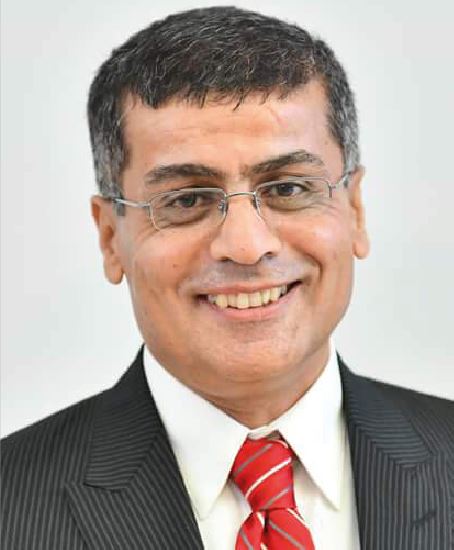Microsoft Cortana, the speech interface of Microsoft’s mobile operating system, was partially developed in Ramallah; the Intel® Small Business Advantage (SBA) solution, 40 million copies of which Intel was able to sell worldwide in one year, was developed and maintained by Palestinian engineers. Many other similar projects were executed by Palestinian software companies to the benefit of Cisco, hp, Fujitsu, Adobe, and Oxford University, to name just a few. Companies in Chicago and Cincinnati have opened their development centers in Ramallah and Nablus; a call center in Ramallah is providing services to many US and European clients; hi-tech startups are mushrooming around the country and providing hotel reservations, real-estate profiling and investment assistance, and geo security and intelligence information, as well as health and medical education in Arabic to Middle Eastern countries. A taxi management and reservation service, similar to Uber, is gaining ground. A hi-tech smart-meter solution that converts any traditional utility meter to a smart one without changing the meter itself has been designed in Al-Bireh. European-based clients are outsourcing business processes, such as back office data entry and digitizing work, to a company in Gaza.
The outsourcing industry in Palestine is a thriving subsector of its information and communication technology (ICT) sector. Comprising almost 20 percent of the software development companies, out of a total of more than 100 firms involved in software-product development, outsourcing accounts for around US$ 15-20 million in sales per annum and employs 1,000 to 1,200 software engineers. The Palestinian software development sector is relatively young; it started mostly after the formation of the Palestinian National Authority in 1996. Growth in the outsourcing segment expanded after 2008, with support from a program initiated by Cisco, a leading company promoting Internet networking. Since 2007, 77 percent of ICT companies have expanded their research and development teams, and we have seen a 20 percent increase in the number of students who apply for engineering and computer science schooling at Palestinian universities. “At a time when many companies color the West Bank red on their maps as an economic no-go zone, Cisco saw an opportunity … Cisco’s leadership has inspired other hi-tech companies to recognize that the West Bank is open for business,” stated former US Secretary of State Hillary Rodham Clinton as she explained the decision to present Cisco with the 2010 Award for Corporate Excellence.
The sector has been growing steadily in the past few years. Since 2014, many Palestinian software firms have been contracted based on business merits, as opposed to corporate social responsibility (CSR), by multinational companies (MNCs) and several offshore companies (usually Palestinian-owned firms based in other countries) that began to open development centers in Palestine. Most of these companies have shown sustainable and consistent growth in the past several years due to the high quality of the outsourced deliverables and the high level of commitment of the Palestinian engineers.
The outsourcing sector, as a significant service-based contributor to export, has the realistic potential to contribute to the Palestinian economy. It may double in size in the coming three years by employing an additional 800–1,000 engineers and by adding US$ 30–40 million in sales though the introduction of new products and by capturing higher-value functions in the value chain. Furthermore, the sector should be able to double again within the subsequent two years, employing an additional 2,000 engineers and reaching US $ 90–100 million in sales by 2023.
The development and business potential generated by the 3,000 computer engineers and computer scientists who graduate annually in Palestine is increasing year by year.
However, to build a dynamic, business-driven outsourcing sector, companies are required to move beyond the idea of CSR and must build strong relations with multinational companies on a purely business-related basis. It necessitates serious development at various levels of the value chain. Interventions by and interactions between the stakeholders must take place at the supply side, the demand side, and academia, while support institutions are needed to expand the market and to help businesses become scalable enough to rise to the market potential and eliminate binding constraints.i Much work needs to be done by the Palestinian hi-tech sector to secure sustainable growth in this vital sector that has the potential to be a major contributor to our national economy. Cisco’s Annual Report 2017 states, “Today, Cisco can proudly say that the ICT sector in Palestine has grown from 0.8 percent of Palestine’s GDP in 2007 to over 5 percent of the GDP in 2010. ICT is now an officially recognized sector of the Palestinian economy.”ii
Currently, local Palestinian firms work primarily with regionally based branches of MNCs for software development and validation. They compete mainly with providers from India and Eastern Europe that are able to offer a broader range of services at a lower cost than Palestinian firms. In contrast, offshore companies work with their parent companies as part of the broader parent-company strategy. Nonetheless, MNCs’ engagement with Palestinian software companies has many advantages over other off-shoring destinations. In the span of an hour to two, Palestinian managers and engineers can arrange to conduct a face-to-face meeting and work together to solve an issue. Such an advantage certainly is an important factor when aiming to meet project deadlines and improve the quality of the outsourced deliverables. Working for Sun Microsystems in Silicon Valley, California, I had to travel frequently from one site to another to attend meetings; I can certainly assert that, during rush hour on Highway 101, travel can take much longer in California than in relatively small Palestine – which makes it much easier to meet with local representatives of MNCs.
Knowing the potential for growth, and based on the current experience in the sector, the Palestinian IT Association of Companies (PITA) has devised a special outsourcing program that contributes to the strategic objective to expand the market reach of the Palestinian hi-tech sector. PITA intends to facilitate an outsourcing assistance program, starting with MNCs in the region. This initiative aims to expand engagement with MNCs by directly addressing their hesitation and alleviating fears regarding assumed “risks” in order to jump-start new business relationships. At a time when hi-tech talent is scarce and in demand worldwide, Palestine has plenty of it, and our hi-tech specialists are available and eager to get started. In its recently developed three-year strategic plan for the development of the private hi-tech industry in Palestine, PITA proposes an ambitious roadmap that aims to drive the growth of the industry in order to widen the market for our companies, increase the quality of its products and services, and enhance the competitiveness of its enterprises. The ultimate mission of the industry aims to build an innovation-driven industry that is able to compete on regional and international levels. Such an ambitious plan cannot be achieved without taking advantage of and benefiting from the outsourcing industry as a resource for growth and international exposure. This plan is highly relevant because there is a lack of sufficiently effective marketing efforts by Palestinian companies that could raise awareness of the existing potential and attract more outsourcing business.
At the other end of the spectrum, the export of Palestinian software products has been limited in number and scope, operating way below its potential – with some successful exceptions, of course. I myself tend to believe that exporting products at this stage is much harder than selling outsourcing services, unless and until products are unique in their kind and can overcome the obstacles and challenges associated with product export, especially regarding after-sales support issues. In addition, exporting products requires longer-term marketing plans and budgets, which many of our companies may not have access to. Many companies have started partnerships with software companies in a number of Middle Eastern countries to present their products and offerings and to provide the after-sales support. Such partnerships need more nurturing so that they may evolve and bear fruit, and thus contribute to sector growth.
In the sixties and seventies, Palestinians exported their talents when Palestinian teachers and professors served as educators in numerous Middle Eastern and Gulf countries. With literacy registering at 96.5 percent, Palestine is known as one of the best-educated nations worldwide. Today, our engineers are skilled enough and eager to contribute to the world’s civilization. The Palestinian hi-tech sector is open for more business – the technology park at Birzeit University, the Rawabi tech-hub, the numerous incubators and accelerators, and the entire sector with more than 10 years of international and export experience. All are ready and open for sustainable business. Just Try Us!
i “MNEs Outsourcing to Palestinians: Market System Analysis,” The Palestinian Market Development Programme, August 2014, available at http://www.pmdp.ps/files/server/Market%20System%20Analysis%20Studies%20/MNEs%20outsourcing%20to%20Palestinians_Market%20Analysis_FINAL.pdf.
ii “Palestine Investment Commitment,” Corporate Social Responsibility:
Cisco Social Investment, 2013, available at https://www.cisco.com/assets/csr/pdf/Palestine_Exec_Brief.pdf.



